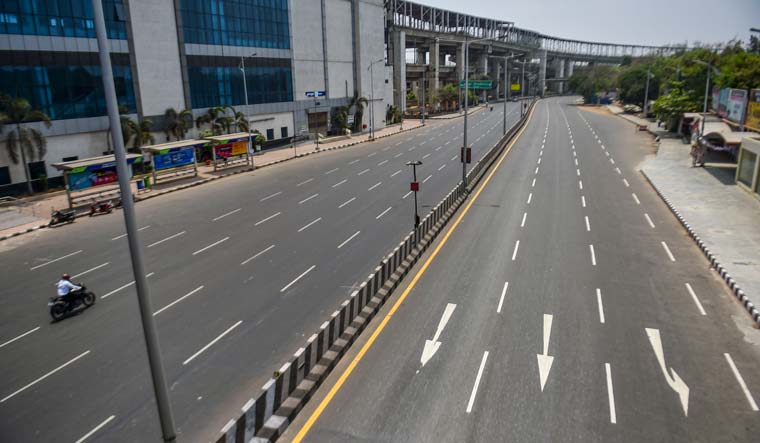
Extending lockdown not a good idea, may invite compliance issues
Notwithstanding the momentary pain, hopefully the lockdown duration was the right strategy and it really flattens the curve. Otherwise the consequences of an extended lockdown could be dire, particularly from a compliance point of view, as has been proven in countries like Italy, shows a latest research by a group of economists.

Let us hope for our own good that the government’s claim that the current nationwide lockdown has helped India flatten the COVID-19 curve, is well and truly proven right in the coming days without warranting a further extension of the April 14 deadline.
Ordered on March 24, the 21-days lockdown has restricted the movement of close to 1.3 billion people, throwing life out of gear. Though announced by the prime minister himself after a successful ‘Janata Curfew’ and ‘clapping’ campaign, as later events exposed, it did not appear to be well thought out and executed.
While a frantic middle class was caught unawares and hit grocery stores to stock up on essentials, millions of migratory labourers hit the roads on foot, wanting to make it back to their hometowns hundreds of kilometers away. More importantly, this posed the risk of these innocent people inadvertently carrying the virus home.
Related news: For COVID-19 cure, WHO unites nations for global study
In an apparent Public Relations exercise, however, the government claimed on March 29 that the cases of coronavirus infections went up only from 100 to 1,000 over a period of 12 days, not a mean achievement, when compared to the 3,500 to 8,000 cases in developed countries over the same period.
As of Sunday (April 5), India has officially reported 3,374 COVID-19 infections, a total of 226 cured or discharged cases and 77 deaths.
Extending lockdown could be counterproductive
Notwithstanding the momentary pain, hopefully the lockdown duration was the right strategy and it really flattens the curve. Otherwise the consequences of an extended lockdown could be dire, particularly from a compliance point of view, as has been proven in countries like Italy, shows a latest research by a group of economists.
Extending lockdown deadlines, after announcing an end-date may prove counterproductive for governments seeking to ensure compliance and arrest the march of COVID-19 through social distancing and limits to personal mobility, caution the economists from the University of Chicago, the University of Toronto Institute of Management and innovation, Johns Hopkins University’s Carey Business School and the Free University of Bozen-Bolzano, Italy.
The findings from their study, published this week by the US National Bureau of Economic Research, gain significance for India in-the-light of the confusion over the extension of the April 14 deadline. Even though the Health Ministry clarified there was no proposal “as of now” to extend it beyond the stated period, experience from Italy, China and the US shows lockdowns tend to be extended.
How countries have responded to lockdown
The economists partnered with market research firm SWG to roll out a survey across Italy to study the willingness or readiness of people to comply with self-isolation measures and the effectiveness of government communication intent vis-à-vis public expectations. The survey was rolled out to nearly 900 respondents last week.
Unlike in China, Italy communicated the lockdown was a temporary measure but extended it multiple times. Yet, Italian public authorities have struggled to ensure compliance with self-isolation despite fines and other severe sanctions for law breakers. The impact of COVID-19 has been the most severe in Italy with the highest deaths and infections.
Related news: Lockdown has changed lifestyle! And internet searches prove that
The situation in China, a totalitarian state, was different as the Wuhan’s lockdown was total, stringent and indefinite. The US too, on Sunday, has had to announce a lockdown till end of April.
The ‘goal gradient’ effect
“A potential implication of moving deadlines is the so-called ‘goal gradient’ effect,” the researchers said in the working paper. The farther one is to a goal, the less likely they are to exert to achieve it. Further, moving the goalpost may lead to frustration if the public begins to believe that the goal is unattainable.
Therefore, not announcing a specific end-date to restrictions on personal mobility is perhaps ideal as it could increase the perceived severity of the reason that motivated those limits, thus potentially increasing compliance. But such measures may also increase anxiety and have other psychological costs because they may signal uncertainty.
On the other hand however, isolation provisions that specify a precise end-date might be more acceptable in democratic regimes than indefinite-duration restrictions of personal freedoms. However, they may convey the idea that the emergency is only temporary, and as such, not particularly severe, the paper notes.
Related news: US’ Trumpidity is why India needs to extend its lockdown
(The writer is a Hyderabad-based journalist and has covered business and technology trends for the last three decades)
(The Federal seeks to present views and opinions from all sides of the spectrum. The information, ideas or opinions in the articles are of the author and do not reflect the views of The Federal.)

